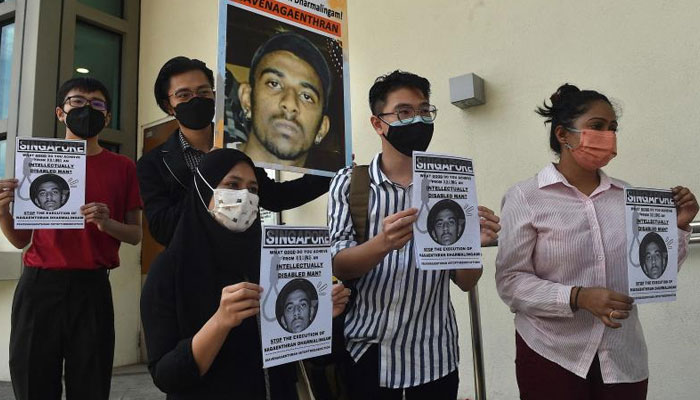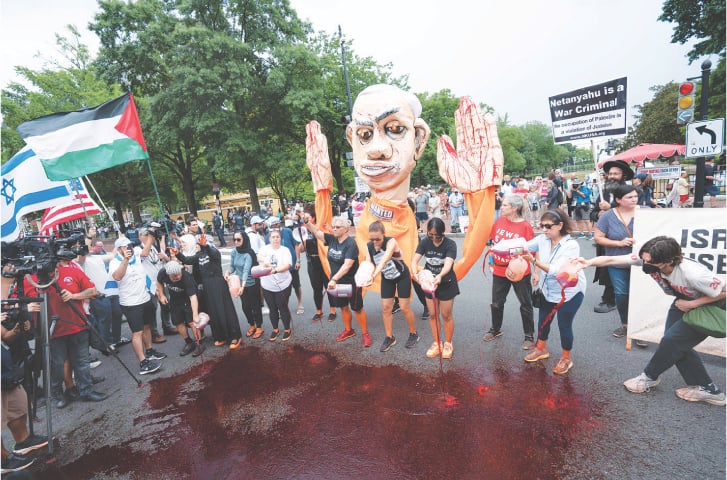
SINGAPORE: A Singapore court on Wednesday rejected appeals by three men sentenced to death for drugs offences despite criticism from the United Nations and rights campaigners.
Roslan Bakar, a Singaporean, and Pausi Jefridin, from neighbouring Malaysia, were arrested in 2008 on drug trafficking charges and sentenced to death two years later.
SINGAPORE: A Singapore court on Wednesday rejected appeals by three men sentenced to death for drugs offences despite criticism from the United Nations and rights campaigners.
Roslan Bakar, a Singaporean, and Pausi Jefridin, from neighbouring Malaysia, were arrested in 2008 on drug trafficking charges and sentenced to death two years later.
The appeal of Singaporean Rosman bin Abdullah was also dismissed.
The city-state has some of the world’s toughest anti-narcotics laws and insists capital punishment remains an effective deterrent against crime, despite mounting calls to soften its stance.
High Court Judge Kannan Ramesh, in dismissing the appeals, said no new arguments were raised that were different from earlier pleas that had been rejected and accused the complainants of abusing the court process.
“In this case, the dominant ‘extraneous purpose’ of the applications is the ulterior intention of delaying the imposition of the sentence of death that was passed on the plaintiffs by disrespecting the finality of the judicial process,” the judge said.
Rights activist M. Ravi, who is assisting the legal team representing the three men, said they were considering another appeal.
The UN rights office has urged Singapore to halt the executions, which would be the city’s first since November 2019, saying the death penalty is incompatible with international human rights law.
Rights group Amnesty International has labelled the planned executions “appalling” and urged Singapore to impose a moratorium on the death penalty.
Malaysian rights group Lawyers for Liberty raised concerns that Pausi has an IQ of only 67, which suggests he has an intellectual disability.
His case bears similarities to that of Malaysian Nagaenthran K. Dharmalingam, which has sparked a storm of criticism, with the European Union among those protesting against his punishment.
Sentenced to death in 2010 for trafficking a small amount of heroin into Singapore, Nagaenthran was scheduled to be hanged in November despite concerns he is mentally disabled.
In an 11th-hour plea this month, Nagaenthran’s lawyer asked the Court of Appeal for mercy and that he be examined by an independent panel of psychiatrists.
The court has yet to issue a ruling on the plea.







